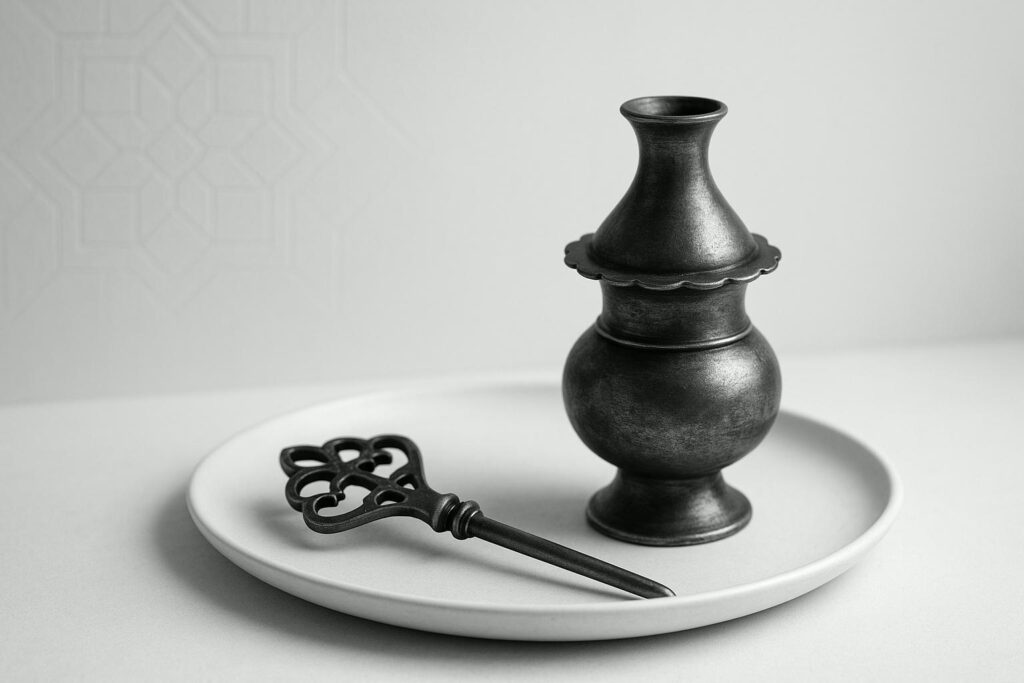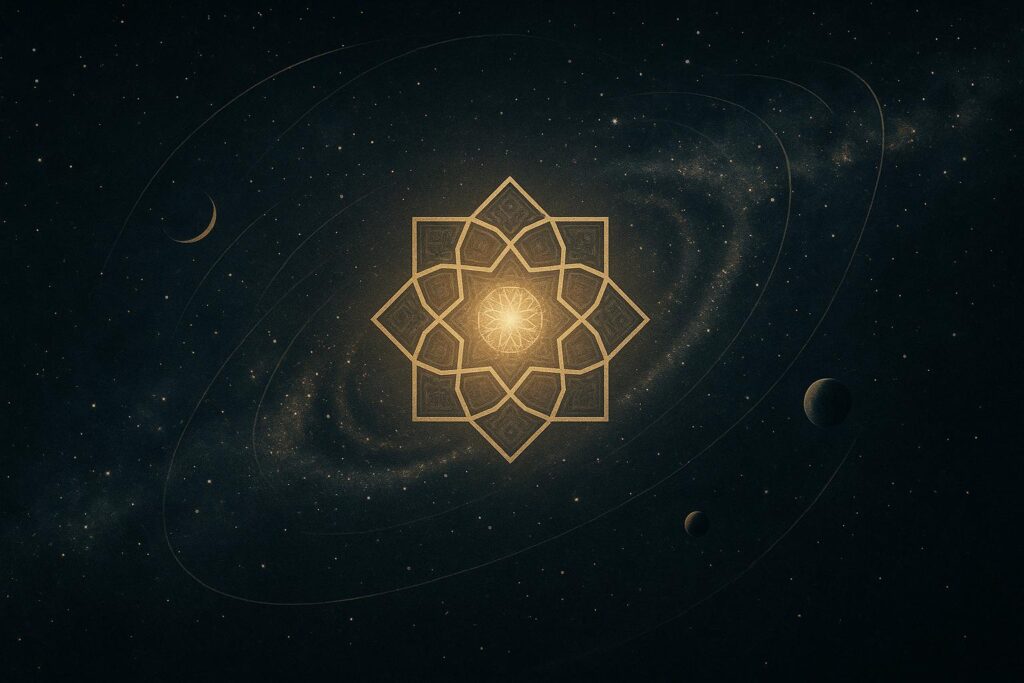Guidance regarding basic Islamic issues that Hazrat Amirul Momineen, Khalifatul Masih Vaa, has given on various occasions in his written correspondence and during MTA programmes is being published officially below for everyone’s benefit.
Is charging a higher price for items sold on instalments considered interest [riba] in Islam?

Someone from Kerala, India, wrote to Hazrat Amirul Momineen, Khalifatul Masih Vaa, and asked: “If an item is purchased on an instalment plan and the total amount paid in instalments is greater than the item’s principal price, would this fall within the scope of interest [riba]?”
In his letter dated 12 April 2023, Huzoor-e-Anwaraa provided the following answer to this question:
“There is no harm in a price differential for goods sold for cash versus on an instalment basis and charging a somewhat higher price for instalments does not fall into the category of interest. This is because, in such a case, the shopkeeper has to maintain a formal record of customers who purchase items on instalments and may also have to issue them reminders for their payments, which will certainly consume their time. In worldly affairs, time also has a value; indeed, salaried professionals receive large salaries precisely for their time.
“A question of this nature was also presented to the Promised Messiahas. The Badr newspaper published an announcement stating:
“‘The smooth running of the newspaper would be facilitated if the subscription price were received in advance. Among those who do not pay in advance and make promises of later payment, some simply delay on the basis of promises alone, while for others, the recovery of payments involves such difficulty – through repeated correspondence and the keeping of records to collect the payments from them – that in order to mitigate this additional labour and loss to some extent and also to receive compensation for it, the price of the Badr newspaper for post-payment has been increased by one rupee; that is, from those who pay afterwards, the price of the newspaper would be collected as four rupees instead of three.
“‘Upon this, a friend from Lyallpur enquired whether this arrangement constituted interest. As this was a matter pertaining to Islamic law, it was presented to the Promised Messiahas with the aforementioned reasons. The reply that he wrote is reproduced below:
“‘‘Assalamu ‘alaikum. In my view, this has no connection to interest. The owner has the right to ask for whatever price he wishes, especially as there is also an inconvenience involved in collecting payment later. If a person wishes to receive the newspaper, they can also pay beforehand. This matter lies within his own choice. Wassalam. Mirza Ghulam Ahmad.’’ (Badr, Qadian, No. 7, Vol. 6, 14 February 1907, p. 4)
“Therefore, it is permissible for a shopkeeper to charge a somewhat higher price for the sale of goods on an instalment basis and this does not fall into the category of interest [riba].”
Is it permissible in Islam for a man to receive condolences for the death of his ex-wife?

Someone wrote to Hazrat Amirul Momineen, Khalifatul Masih Vaa: “My husband’s former wife, from whom he has three children, passed away a few days ago. Is it permissible for my husband to receive condolences for his former wife?”
In his letter dated 12 April 2023, Huzoor-e-Anwaraa provided the following guidance on this matter:
“When a person passes away, it is common for people to offer condolences to the deceased’s distant and near relatives, their loved ones and even their friends and associates. In the offering and receiving of these condolences, the sharia has not imposed any restriction based on one being a mahram or a non-mahram.
“Therefore, if someone has offered condolences to your husband on the death of his former wife – who had obtained a divorce from him some time ago – and your husband has responded to these condolences, there is no harm in it. This is especially so because your husband also has three children from the deceased lady. Thus, given that the deceased was the mother of your husband’s children, there is no cause for objection or prohibition if he has accepted condolences on her passing.”
What is the correct way to perform masah of the head and neck during wudu?

A missionary sent the following enquiry to Hazrat Amirul Momineen, Khalifatul Masih Vaa: “Regarding the wiping of the head [masah] during ablution [wudu], some Jamaat books mention passing the hands over the neck, while others do not. What is the correct method?”
In his letter dated 12 April 2023, Huzoor-e-Anwaraa provided the following guidance on this question:
“Regarding the wiping of the head during wudu, various methods are described in the ahadith, as you have also noted in your letter. For instance, some mention the wiping of the front and back parts of the head. (Sahih al-Bukhari, Kitab al-wudu’, Bab mun madmada wa-stanshaqa min gharfatin wahidah) Others mention beginning the masah from the front part of the head, taking the hands back to the nape of the neck and then bringing them forward again. (Sahih al-Bukhari, Kitab al-wudu’, Bab mas-hi r-ra’si kullih). Some ahadith also mention wiping the inside and outside of the ears, while others mention wiping the temples. (Sunan Abi Dawud, Kitab at-taharah, Bab sifati wudu’i n-nabiyyisa).
“On the basis of these ahadith, Islamic scholars and jurists hold that masah of the head is necessary, but there is disagreement among them as to how much of the head should be wiped. According to Hazrat Imam al-Bukharirh and Hazrat Imam Malikrh, it is necessary to wipe the entire head, whereas Hazrat Imam Abu Hanifahrh and Hazrat Imam Shafi‘irh consider the wiping of a part of the head to be sufficient. (Sharh Sahih al-Bukhari by Hazrat Syed Zain-ul-Abidin Waliullah Shahra, Vol. 1, p. 274)
“Similarly, there is also disagreement among the jurists regarding the inclusion of the neck in the wiping of the head. Thus, according to the Hanafis, wiping the neck is a mustahabb or recommended act. However, according to the other three Imams, i.e., Hazrat Imam Malikrh, Hazrat Imam Shafi‘irh and Hazrat Imam Ahmad ibn Hanbalrh, wiping the neck is not considered mustahabb.
“Describing the details and wisdom of wudu, Hazrat Musleh-e-Maudra stated the following concerning masah:
“‘Having wet the hands, between one-third and two-thirds of the hair on the head is wiped. Then, with the finger next to the thumb, the cavities of the ears are moistened and the thumbs are passed over the back of the ears so that the back of the ears also becomes wet. […] Heat in the head can cause thoughts to become very scattered. For this reason, the wiping of the head has been prescribed, which cools the head, dispels its heat and is conducive to the concentration of thoughts.’ (Tafsir-e-Kabir, Vol. 1, UK: 2023, pp. 159-160)
“In my view, the mention in the ahadith of wiping over the nape of the neck is in fact the wiping of the neck itself. Therefore, whether one begins the masah from the front of the head and takes the hands back to the nape, i.e., the neck and then wipes the inside and outside of the ears with the thumb and finger; or, as is mentioned in some books with greater detail, one wipes the head with the front part of the hands, passes the index fingers inside the ears and the thumbs on the back of the ears and finally wipes the neck by passing the back of the hands over it – whichever of these methods one adopts, their masah of the head will be complete.”
What is the ruling on applying kohl or surmah while fasting?

A missionary wrote to Hazrat Amirul Momineen, Khalifatul Masih Vaa, that regarding the application of kohl [surmah] during a fast, a lady had told him that she was born and raised in Rabwah but had never heard that kohl should not be applied during a fast and that there was also an article on Alislam.org in which it was written that a woman could apply kohl while fasting. The missionary added that the Promised Messiahas had, however, declared it to be a disliked or makruh act and stated, ‘What is the need to apply kohl during the day? One can apply it at night.’ He requested guidance as to whether there is any difference between men and women in applying kohl while fasting, or if the same rule applies to both.
In his letter dated 12 April 2023, Huzoor-e-Anwaraa provided the following guidance in this regard:
“By the grace of Allah the Exalted, you are a missionary of the Jamaat. You studied at Jamia for seven years and have been blessed with the opportunity to serve as a missionary for many years. It is a matter of some surprise that even after reading all the references you have mentioned in your letter, you would express a state of uncertainty about this issue based on the unsubstantiated statement of a lady.
“You ought to have stated with full conviction that the Promised Messiahas, who is the Just Arbiter [Hakam ‘Adl] of this age, has provided an unequivocal answer on this matter, which is also supported by a hadith of the Holy Prophetsa: a fasting person (be it a man or a woman) is not permitted to apply kohl while fasting. And this is the same answer I have previously given, which has been published in the ‘Answers to Everyday Issues’ column [of Al Hakam].
“As for the mention of an article on the Alislam.org website that states a contrary position without any proof, that position is neither that of the Promised Messiahas, nor of any of his Khulafa’, nor is it a ruling of the Mufti-i-Silsilah, the mufti of the Jamaat. If someone has written such a thing in their article, it may be their personal opinion, but it cannot be considered the official position of the Jamaat.
“In any case, I am instructing the administration of the Alislam.org website to correct this error. Likewise, an incorrect answer regarding this matter is also recorded in the book Fiqh-e-Ahmadiyya. The relevant department is being directed to ensure its correction.
“In fact, several matters have been recorded in Fiqh-e-Ahmadiyya that require correction. It is for this reason that a revision of Fiqh-e-Ahmadiyya is underway. When the revised edition of Fiqh-e-Ahmadiyya is published, this passage, insha-Allah, will also be rectified.”
How does the Holy Prophet Muhammad’s (sa) title ‘Mercy for All Worlds’ apply to the entire universe?

A lady from Norway asked Hazrat Amirul Momineen, Khalifatul Masih Vaa: “How will the Holy Prophet’ssa status as the “Mercy for All Worlds” or “Rahmatul-lil-‘Alamin” be manifested for this infinite universe? Will this manifestation occur before the Day of Judgement, or will the system of this world and the hereafter be established anew for it? And if this manifestation occurs through the angels, how will the Holy Prophet’ssa station be proven therein?”
In his letter dated 14 April 2023, Huzoor-e-Anwaraa provided the following answer to this question:
“In this world, the manifestation of the Holy Prophet’ssa mercy and compassion extended to all types of God’s creation – friend and foe, humans and animals and even flora and minerals, trees and mountains – the accounts of which fill the books of hadith and Prophetic biography [sirah]. And for the manifestation of his mercy in the life to come, Allah the Exalted has granted him permission to intercede [shafa‘ah]. Furthermore, his mercy and compassion for all of humankind on the Day of Judgement are described in the hadith which mentions that on that Day, people beset by anxiety and hardship will go to Hazrat Adamas, then Hazrat Nuhas, then Hazrat Ibrahimas, then Hazrat Musaas and then Hazrat Isaas and will say, ‘Do you not see the predicament we are in and the great affliction that has seized us? Will you not intercede for us in the court of your Lord?’ But all these Prophets will state some excuse of their own. Then the people will come to the Holy Prophetsa and, upon seeing their suffering, he will fall into prostration before his Lord, declaring His praise and glory and will intercede for them, having them delivered from their afflictions. (Sahih al-Bukhari, Kitab at-tafsir, Bab ‘dhurriyyata mun hamalna ma‘a nuhin innahu kana ‘abdan shakura’)
“Thus, regarding both this world and the next, Allah the Exalted has given us knowledge and informed us of the Holy Prophet’ssa mercy and compassion within them. As for the future, when the secrets of the universe are revealed to mankind, if any new world or new creation is discovered therein, only then will mankind be able to know of the reflection of the Holy Prophet’ssa mercy and compassion upon that new world and new creation. It is for this reason that I said in my virtual mulaqat with the members of Lajna and the nasirat of your country that when we gain access to other planets where there is a population and when we convey the message of the Holy Prophetsa to them, then [the dwellers of] those planets will also be included in his mercy. At present, we have not even properly conveyed the message of the Holy Prophetsa here on our own earth and yet we speak of other planets. Therefore, the Holy Prophetsa is the Rahmatul-lil-‘Alamin as far as his message has reached. Allah the Exalted is the Lord of All Worlds [Rabb-ul-‘Alamin] and the manifestation of His Lordship is present throughout the entire universe, in all the thousands and millions of galaxies. However, the message of the Holy Prophetsa is currently only on this earth and when his message reaches other places, the reflection of his mercy will begin there as well.
“Furthermore, the sharia brought by the Holy Prophetsa is, in one respect, also a manifestation of his being the Rahmatul-lil-‘Alamin, because such a perfect and everlasting law was neither given to any Prophet before him, nor can it be given to anyone until the Day of Judgement. And since God the Exalted Himself has taken the responsibility for its preservation and protection, wherever the teachings set forth in this law reach, creation will continue to benefit from the mercy of the Holy Prophetsa.
“Regarding the Holy Prophet’ssa status as the Rahmatul-lil-‘Alamin, the Promised Messiahas, stating a most excellent point, says:
“‘Allah the Exalted states, ‘O Prophet! We have sent thee as a mercy for all the worlds.’ His being the Rahmatul-lil-‘Alamin [i.e., mercy for all the worlds] is properly understood only in relation to the divine attribute of Graciousness [Rahmaniyyat], because Mercifulness [Rahimiyyat] is specific only to the one world of the believers.’ (I‘jaz-ul-Masih, Ruhani Khazain, Vol. 18, p. 118, footnote)
“The difference between the attributes of Rahmaniyyat and Rahimiyyat is that under the attribute of Rahmaniyyat comes the treatment of mercy that is shown to humans, animals, creatures of land and air, trees, the wind, mountains – in short, to any object in the universe – which has no connection to any deed or effort on the part of that creation. Rather, that mercy flows without any recompense. For example, for the sake of mankind, Allah the Exalted created the earth and its environment millions of years before mankind’s own creation. Or He fashioned the womb within the mother’s body, the vessel in which the genesis of his creation was to occur.
“In contrast, under the attribute of Rahimiyyat comes the mercy that is a result of someone’s effort or deed. For instance, when a person performs a good deed, Allah the Exalted sends down His mercy upon them in return.
“Thus, from this statement of the Promised Messiahas, this subject also becomes clear: just as the attribute of Allah the Exalted’s Lordship [Rububiyyat] is spread over the entire universe and every particle of the universe is receiving a portion from this Rububiyyat without any effort or action, in the same way, the mercy of the Holy Prophetsa also encompasses the entire universe. Wherever any human, land or air creature, mountain, tree, flora, or mineral – in short, any particle of the universe – wishes to benefit from this mercy, it can gain from it under his attribute of Rahmaniyyat. In contrast, the mercy that flows under his attribute of Rahimiyyat will continue to be obtained by creation as a result of acting upon the teachings he brought. Wherever the message of the teachings he brought reaches and the creation there acts upon it, they too will continue to receive a portion from his mercy.”
(Compiled by Zaheer Ahmad Khan, Head of Records Department, Private Secretariat, London and translated by Al Hakam)

